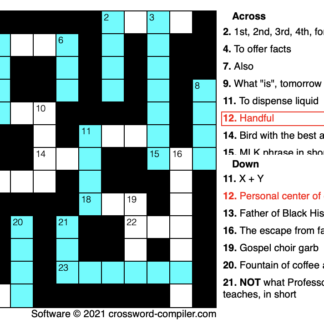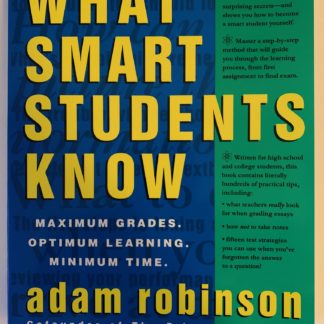As someone who has worked on education policy issues for more than two decades I recognize that all of our children are learning within influential contexts. School systems, classrooms, state systems, social constructs, and specific school missions can all impact student success. My appeal to you as a colleague, as another parent who wants the best education for their child, is to consider our actions to be a major part of the equation.
Recently I listened to an interesting lecture offered by Dr. Andre Perry, a resident scholar at the Brookings Institute. The lecture precedes a book he just released called, “Know your Price: Valuing Black Lives and Property in America’s Black Cities“. In this book Dr. Perry tackles the myth that the negative socio-economic conditions faced in Black communities can be traced to that community’s own “collective choices and moral failings”. During his lecture and in his book, he talks about the extent to which institutional racism has suppressed the potential of African Americans living in six Black-majority cities. His conclusion is that there is “nothing wrong with Black people that ending racism can’t solve.”
With his declaration, he invokes a dichotomy that pervades in the public square. Dr. Perry is on that side of that dichotomy that I’ll call “structuralists”. Structuralists are people who hone in on how institutional or systemic factors influence our outcomes and those for our communities. Opposing views come from “individualists”. Individualists, as implied, hone in on the extent to which an individual sought to influence their own outcome. Unfortunately, because of the way the debates play out, if someone seems to show structuralist tendencies, they will be accused of foregoing personal responsibility. Conversely, those who focus on individual behavior may be accused of “blaming the victim”. At this point of the discussion you may have already assigned the title, “structuralist” to progressives or liberals, and “individualist” to conservatives. This dichotomy, however, offers a false choice.
It is possible to consider simultaneously the influence of one’s context while developing strategies to navigate it. That prospect is a necessary component of success as explained by Dr. Sharon Fries-Britt in the previous post’s interview. In my own experience, I was raised by one parent who left school in the third grade and another who got as far as high school. Conversely, I attended Providence Country Day, a 98% white prep school in Rhode Island. Most certainly, as a Black child with parents of modest means, it took navigation strategies to get through that school. There were no “diversity counselors”, Black faculty, or Black administrators.
 One might consider my “career” there to have been successful. My senior year, I was the co-captain of the basketball and lacrosse teams, and was the student council president. I then attended Tufts University and majored in political science. Yet, despite working hard in high school, I was a “late bloomer” academically as I struggled my first year and a half. The problem was not effort. I hadn’t yet figured out what was required of me as a student. Frankly, I needed someone to reach me–to help me work through my negative thoughts and to help me learn how to perform practical academic functions like “analyses”.
One might consider my “career” there to have been successful. My senior year, I was the co-captain of the basketball and lacrosse teams, and was the student council president. I then attended Tufts University and majored in political science. Yet, despite working hard in high school, I was a “late bloomer” academically as I struggled my first year and a half. The problem was not effort. I hadn’t yet figured out what was required of me as a student. Frankly, I needed someone to reach me–to help me work through my negative thoughts and to help me learn how to perform practical academic functions like “analyses”.
“So yes, this blog overall offers an individualist approach, but with a recognition of the structures that one must navigate.”
I’m mentioning these aspects of my background because they continually remind me of why I’m compelled to build Achievement Factors. I must acknowledge that there were abject moments of racism at my high school. And as the only African American student in the upper school when I graduated, such moments exacerbated the pre-existing feelings of social isolation. Despite those challenges, there were ways I still could have improved. It is those ways that I will continue to explore–along with those that can be derived from other’s experiences. So yes, this blog overall offers an individualist approach, but with a recognition of the structures that one must navigate.
 What does it take, however, to recognize what another student needs? With my testimony above I’m admitting that while I may have looked successful, I really needed someone to reach me. What if my behavior signaled something less promising? I spoke with one of my cousins, Glenda Capers, an experienced teacher and school counselor in New Jersey, with a Masters Degree in Special Education, who has worked with students of varying ability levels. I asked her what kinds of behaviors signal that more intense attention should be given to a particular child’s development. Following is her list:
What does it take, however, to recognize what another student needs? With my testimony above I’m admitting that while I may have looked successful, I really needed someone to reach me. What if my behavior signaled something less promising? I spoke with one of my cousins, Glenda Capers, an experienced teacher and school counselor in New Jersey, with a Masters Degree in Special Education, who has worked with students of varying ability levels. I asked her what kinds of behaviors signal that more intense attention should be given to a particular child’s development. Following is her list:
- students who have a difficult time getting started
- students who have difficulty completing assignments
- students who have difficulty retaining information (an hour later, or the next day)
- students who lack persistence
- students who lack an ability to prepare
- students who are fidgety
- students who are always chatting
- students with poor social skills
- students who are defiant (contumacious)
I’ve added links to each of these behaviors in order to offer a departure point to explore attributes that you may have noticed. I favored the sources that didn’t offer a diagnosis as part of their advice.
In my conversation with Glenda, she mentioned that while school counselors offer assistance to support parents facing these challenges, they refrain from “diagnoses” in order not to mistakenly “label” a child, even when they see these behaviors being exhibited in class. I can appreciate their perspectives given that: a) misdiagnoses could lead to lower expectations for future academic achievement; and b) students in one or more of these categories might in fact might be “twice-gifted”.
Students who are twice-gifted may be showing tendencies like any one of or combination of those on the list. However, they may also may be intellectually gifted. It is this possible combination of elements that generated this post. On one hand, there are children whose fidgeting, or defiance is indicative of an underlying condition needing therapy or professional intervention. On the other hand, those conditions may be alleviated with the kinds of tips included in the linked articles. Or, even if intervention is required, there is still reason to believe that one’s child has promise.
I needed help when I was younger. Looking back, I’m almost certain that I exhibited some form of the qualities listed. But instead of labeling me as, “hardheaded”, something I’m sure my cousin Glenda wouldn’t have done, my parents kept paying close attention to my progress, meeting with my teachers, pushing me to advocate for myself, and believing in my potential. What I’m asking of you is to consider the person you were when you were younger and what it would have taken for someone to really know what you needed to thrive back then. We can be so complex, but most of us are reachable– even though the world tends to judge us too quickly.
Lastly, this post was written at the same time we learned about the senseless death of George Floyd. Protests are in the streets, and structural racism, as it is manifested through our criminal justice system, is being denounced. The topic of criminal justice and much needed reform is out of the scope of this blog. However, what is within the scope is the impact that the greater society has on the minds of our children. If they have seen the news, those actions and reactions may weigh heavily on them. Thus, it requires that we find our way through these difficult moments–both considering the impact of structure while influencing what we can control– so that we can help our children get through them as well.

